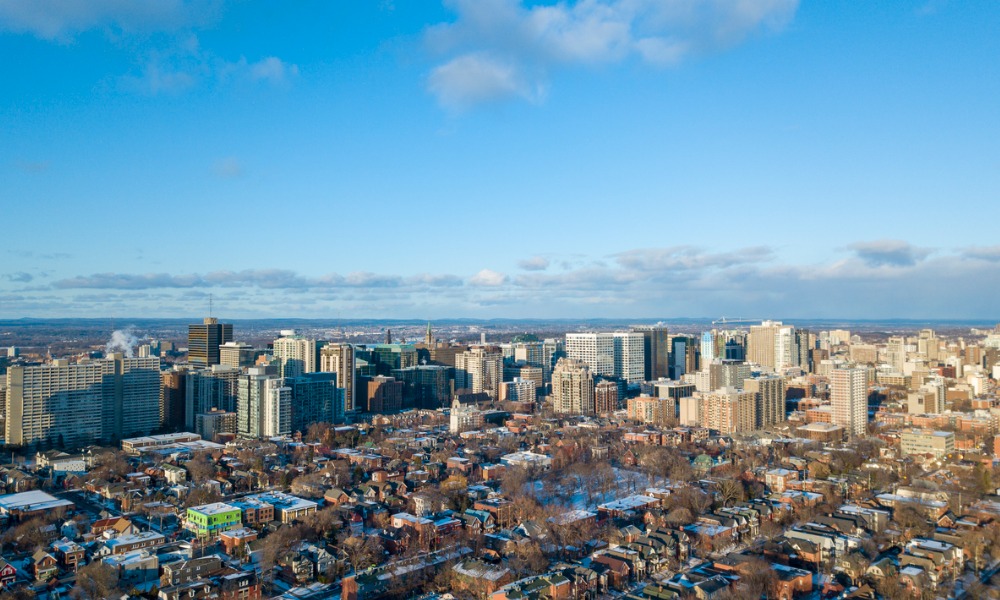Nonprofit taps into community investments to expand rental stock

The Ottawa Community Land Trust (OCLT) has launched a unique initiative to raise $1.72 million for affordable housing by selling community bonds.
The nonprofit aims to use these funds to purchase more multi-unit apartment buildings and offer investors a reasonable rate of return.
Last month, the OCLT held a launch event to introduce community bonds. Their goal is to raise $1.72 million to purchase and preserve affordable rental units.
The OCLT has already raised $450,000 from organizations and individual investors, with commitments from groups like the United Way of Ottawa. These bonds offer investors a reasonable rate of return while also contributing to a crucial social cause.
"Between 2011 and 2021, our city lost 30,000 units that had been renting for under $1,000," executive director Mike Bulthuis told local publication Ottawa Citizen. "We are ambitious in wanting to preserve buildings over as many units as possible."
The funds raised will be used to refinance an existing six-unit apartment building on Kirkwood Avenue and acquire at least two more multi-unit buildings by the end of the year. The OCLT's long-term vision is to secure hundreds of affordable units in the coming years.
Community bonds, a growing "social finance tool," offer non-profits like the OCLT an alternative way to raise funds, filling the gaps left by traditional grants.
The Ottawa Land Trust Bonds are administered by Tapestry Community Capital, which manages community bonds. The bonds offer different rates of return based on the amount and duration of the investment:
- Series A: Minimum investment of $1,000 with a return of 3.5% over three years.
- Series B: Minimum $5,000 investment with a 4% return over five years.
- Series C: Minimum $50,000 investment over seven years with a 4.5% return. Business community members urged the land trust to increase the minimum investment from $25,000 to $50,000.
"The returns are quite fair. But of course, we emphasize that in addition to the financial return, you’re contributing to the social impact rate," said Bulthuis. "One of the beauties of it is that it’s quite accessible. I know not everyone can invest $1,000, but a lot of folks can."
Hilary McVey, a local partner at Deloitte and OCLT board member, sees the bonds as a creative way to address the housing crisis.
"Everyone has heard stories about people who can’t afford to buy their first home," McVey said. "People are wondering what they can do at a micro level. This is such a big macro problem.”
Creating affordable housing requires multiple partners, said Bulthuis. When the land trust bought the Kirkwood Avenue building in 2023, it was through a municipal grant, a $250,000 philanthropic gift, and a mortgage.
The rental revenue is relatively low because tenants pay less than market rent, which limits mortgage eligibility through traditional banking.
The land trust aims to raise the capital to secure properties and then release them to organizations with expertise in tenant support and property management.
"What we’re trying to do is establish that portfolio, establish that balance sheet, and come to scale where we’ll become an entity that has the capacity to go into the market and preserve more and more of those units," Bulthuis said.
The land trust has added another bond option, Series D, that returns the principal after three years with no interest, following community feedback.
"Someone said, 'If I know I can pool my money with that of others, that’s enough. I know it’s helping to preserve affordable housing. As long as I get my principal back,'" Bulthuis explained. "We’re curious to see what kind of response we get on zero percent. We haven’t calculated the zero percent into our modelling, so we’re not making any assumptions around that."
Community bonds are not as common as they should be, said Mary Warner, co-executive director at Tapestry Community Capital.
“Grants are great, but they take a long time. The traditional banking system doesn’t understand the needs of non-profits.” However, she cautioned that investing in community bonds carries risks, as they are not regulated by the securities commission and are unsecured.
So far, Tapestry has helped non-profits raise $110 million in community bonds, with all clients successfully reaching their fundraising goals, said Warner.
Make sure to get all the latest news to your inbox on Canada’s mortgage and housing markets by signing up for our free daily newsletter here.



